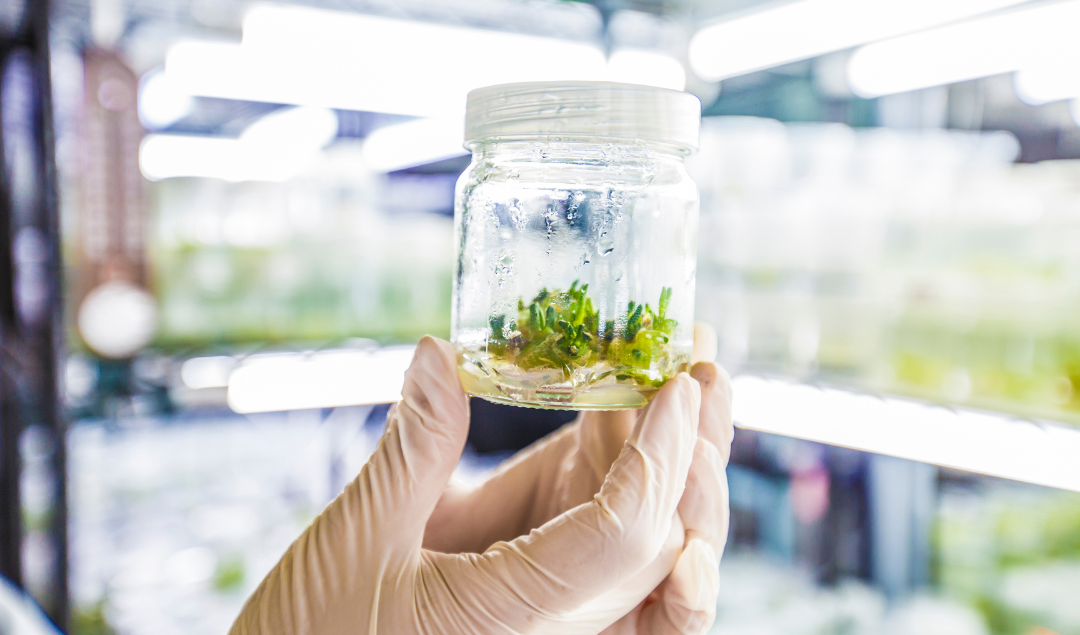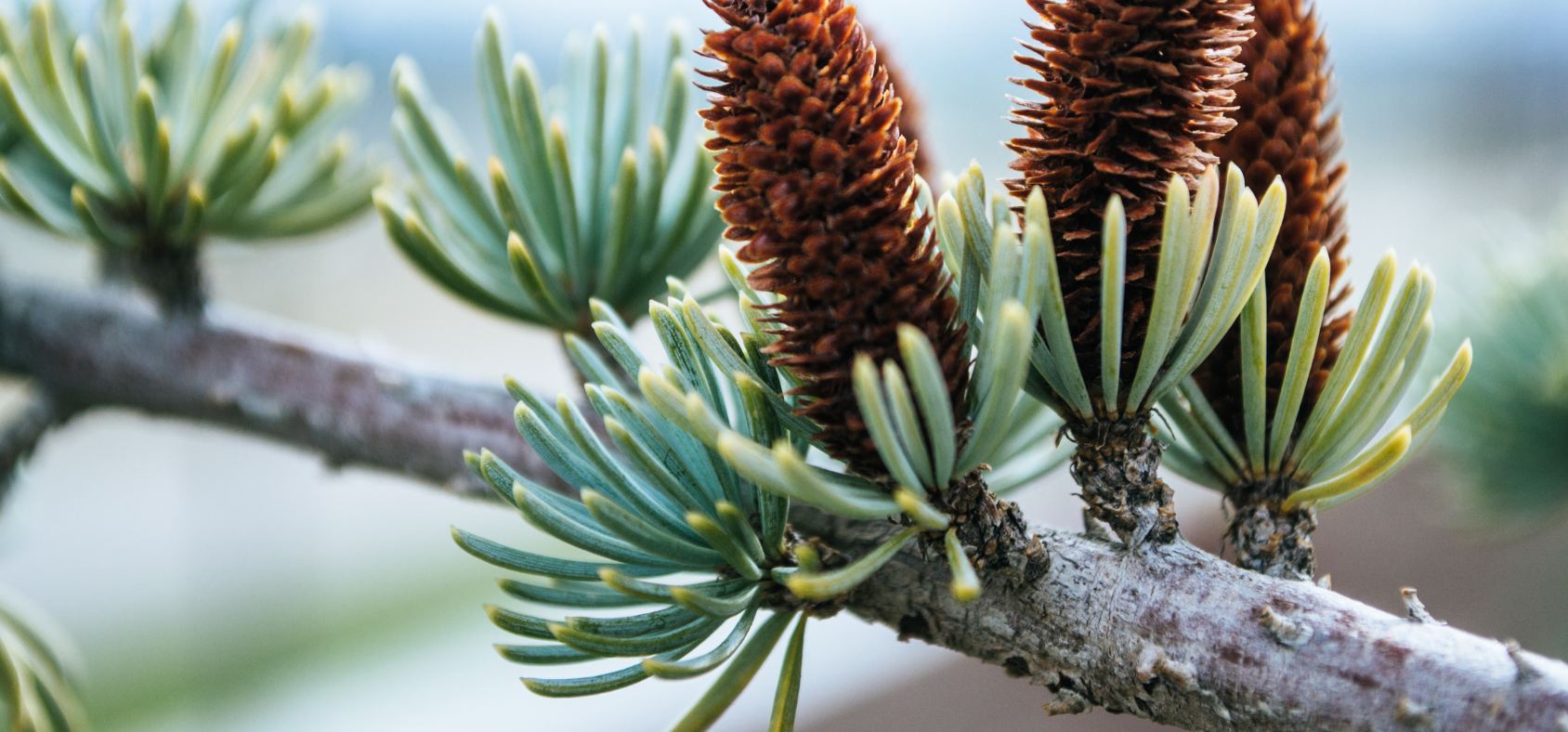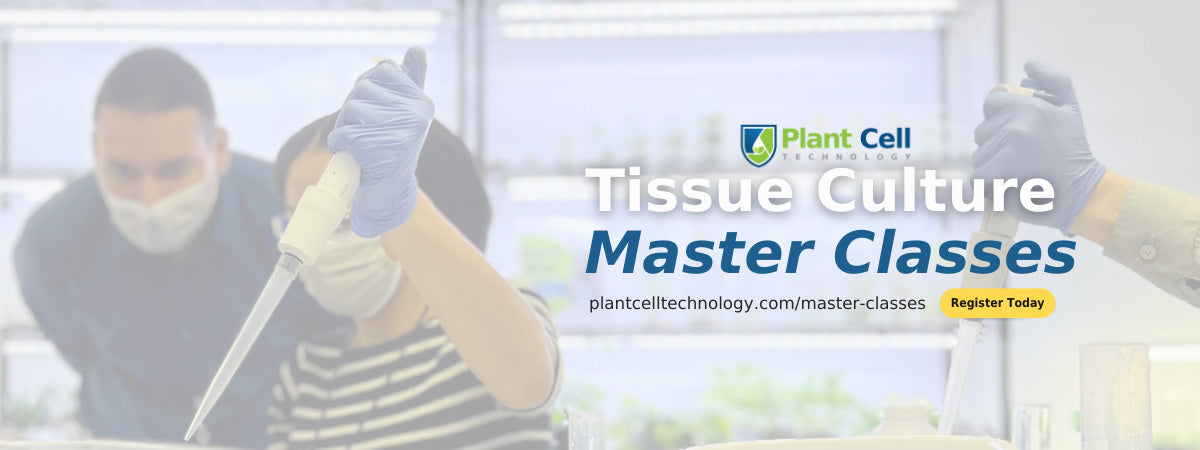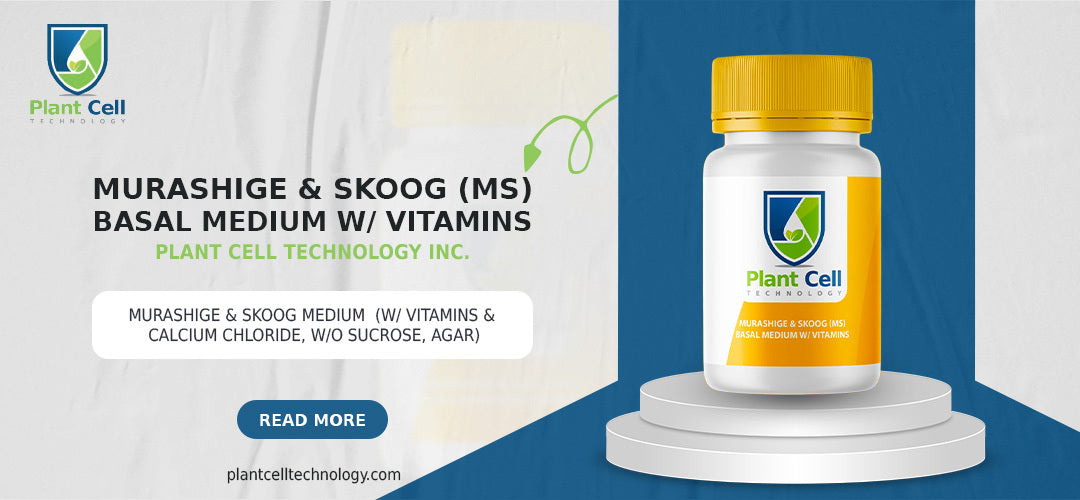
For Beginners: Definition, Preparation, and Applications of MS Media
As a content and community manager, I leverage my expertise in plant biotechnology, passion for tissue culture, and writing skills to create compelling articles, simplifying intricate scientific concepts, and address your inquiries. As a dedicated science communicator, I strive to spark curiosity and foster a love for science in my audience.


MS or Murashige and Skoog Media is a nutrient media used for the in vitro culture of plant cells, tissues, and organs. It was first developed in 1962 by Toshio Murashige and Folke Skoog and has since become one of the most widely used media for plant tissue culture.
What Is Murashige & Skoog (MS) Media?
In order to develop their organs and run their metabolic processes, plants need nutrients and minerals. It's no different than us or any other living being on this planet that needs food to grow and develop.
Thus, whatever the growth conditions are, plants require their food in the optimal amount for their proper growth and development.
This is the role played by MS media when plants are brought to lab conditions.
MS or Murashige and Skoog Media is a nutrient media used for the in vitro culture of plant cells, tissues, and organs. It was first developed in 1962 by Toshio Murashige and Folke Skoog and has since become one of the most widely used media for plant tissue culture.
It contains a balanced mixture of macronutrients, micronutrients, vitamins, and plant growth regulators to provide optimal conditions for the proper growth and development of plants.
The nutrient composition of MS media:
- Macronutrient: The macronutrients in MS medium are the primary elements that plants need in large amounts for their growth and development. They include nitrogen (N), phosphorus (P), potassium (K), calcium (Ca), magnesium (Mg), and sulfur (S). These macronutrients are provided in the form of inorganic salts, such as ammonium nitrate (NH4NO3), potassium phosphate (KH2PO4), calcium chloride (CaCl2), magnesium sulfate (MgSO4), and potassium sulfate (K2SO4).
- Micronutrient: The micronutrients in MS medium are trace elements that are required in smaller amounts for plant growth and development. They include iron (Fe), manganese (Mn), zinc (Zn), copper (Cu), boron (B), and molybdenum (Mo). These micronutrients are provided in the form of various salts, such as iron sulfate (FeSO4), manganese sulfate (MnSO4), zinc sulfate (ZnSO4), copper sulfate (CuSO4), boric acid (H3BO3), and sodium molybdate (Na2MoO4).
- Vitamins: The vitamins added to the MS medium include thiamine (vitamin B1), pyridoxine (vitamin B6), nicotinic acid (vitamin B3), and riboflavin (vitamin B2).
This article covers all about MS media, including its preparation and applications in plant tissue culture.

Supplements of MS Medium
Other than macronutrients, micronutrients, and vitamins, plants need other supplements as well to grow properly in the lab environment. It includes:
- Sugar: Sucrose acts as a carbon source for plants. It avails the energy plants need to grow and develop.
- Solidifying agent: Two most commonly used solidifying agents used in tissue culture medium are: agar and gellan gum. They provide solid support and supply nutrients for the growth of in vitro plants. They are also important for maintaining the pH and osmotic balance of the medium.
- Plant Growth Regulators: These are also known as plant growth hormones or hormones. The five classes of hormones naturally found in plants include: auxin, cytokinin, gibberellic acid, abscisic acid, and ethylene. However, normally only auxin, cytokinin, and gibberellic acids are only widely used in tissue culture applications. Cytokinin is added to promote cell division and shoot formation, while auxins can be added to promote root formation.
- Antibiotics or PPM (Plant Preservative Mixture): Contamination is the major challenge in the tissue culture lab. Thus, you need to have something that can fight those tiny organisms that we can’t see invading our plants through our naked eyes. Though antibiotics are a traditional solution to the problem, culturists now prefer to use PPM in the media that provide their plants an all-round protection from all types of contamination, such as airborne, waterborne, or those coming from other sources.
- Plant Extracts: Some researchers use plant extracts such as coconut milk, tomato juice, and banana pulp can be added to the MS medium to provide additional nutrients and growth factors for plant tissue culture. They boost the growth of plants or help in reducing the time plant cells take to start dividing in vitro environments.
- pH indicators: Phenol red or bromothymol blue can be added to the MS medium to monitor changes in pH during plant tissue culture. However, they are rarely used.

How To Prepare MS Media?
Follow the given steps to prepare the tissue culture media using MS media:
- Take a beaker and add 800 ml of sterile distilled water to it.
- To the water add PCT’s MS Media 4.54 grams (you don’t need to measure it as it comes in a measured bottle), 30 grams of sugar, and PPM™ (generally 1-2 ml/L of media based on the plants and contamination level.
- Add water to make 950 ml of the volume of the media.
- Adjust the pH of the media between 5.8-6.0.
- Add PCT’s Supreme Tissue Culture Grade Agar to the media and keep stirring.
- Make up the volume of the media to 1000ml.
- Autoclave the medium for 20 minutes at 15 psi and 121℃.
Your media is ready!

Applications Of Different Strengths of MS Medium In Plant Tissue Culture
MS media is widely used in tissue culture labs for a spectrum of in vitro applications, starting from callus induction, shoot regeneration, root formation, and somatic embryogenesis. However, you must know not all plants need MS media to grow in the lab environment. Some prefer the different compositions of micro and macronutrients for their organ development.
That’s why you always need to figure out what media suits your plants the best.
Additionally, the strength of MS media can have a significant impact on the growth and development of plants. The three types of MS media strength used in labs include:
Full strength: It contains a full concentration of macro and micronutrients. They are often used for the initial stages of plant tissue culture when the plants require a high level of nutrients and growth regulators to promote rapid growth and development.
Half strength: It contains half the concentration of micro and macronutrients as of full-strength media. This can be useful when growing plants that are more sensitive to high levels of nutrients and at later stages of plant tissue culture when the plants require fewer nutrients and growth regulators for continued growth and development.
Quarter Strength: It contains 1/4th concentration of micro and macronutrients as of full-strength media. It might be suitable for the later stages of plant growth when the in vitro plants might only need maintenance in the lab environment.
Need High-Quality Tissue Culture Reagents For Your Tissue Culture Applications? Plant Cell Technology is Your Partner!
Plant Cell Technology is helping tissue culturists worldwide by providing unique and world-class products and services that smoothen their process. The PCT Store has MS media, agar, gellan gum, Plant Preservative Mixture (PPM™), culture vessels, Biocoupler™, and masks in its store to facilitate your processes.
And, that’s not it! Plant Cell Technology also offers consultation services to culturists of all sizes that help to get instant solutions to your tissue culture problems.
You can either book a one-on-one consultation call or a physical visit to your lab. We help you at every step of the tissue culture process, ranging from establishing a tissue culture lab to preventing contamination problems or any specific challenges in your process.
Further, in the coming month, we are conducting a range of Master Classes for tissue culture enthusiasts like you. The class offers you the great opportunity to directly learn from the experts in the area, who have 10-30+ years of experience.
So, visit plantcelltechnology.com today and learn more about our products and services and how they help you excel in your tissue culture processes.
Happy Culturing!
Blog Categories
View by Level
Popular Blogs

Media pH: Why It Matters More Than You Think in Plant Tissue Culture
Introduction Plant tissue culture is a cornerstone technique in modern plant biotechnology, enabling the propagation of plants under sterile and...
Read More
Can We Grow Wood in a Lab? The Future of Tissue Culture in Forestry
Introduction Wood has long been a cornerstone of human civilization—used for shelter, tools, paper, energy, and countless everyday items. However,...
Read MoreSubscribe to Our Newsletter
1 comment
Looking fwd to learning more and your educational materials to help me explore. Thank you!










Join the conversation
Your email address will not be published. Required fields are marked